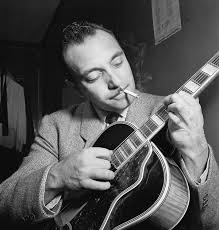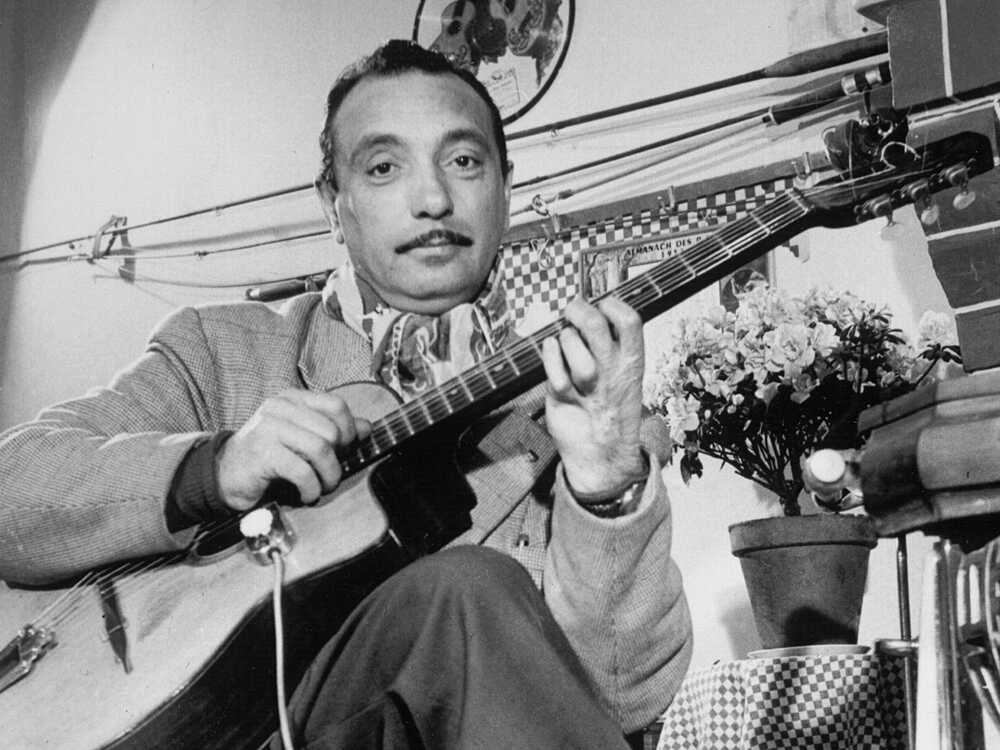Django Reinhardt was a jazz legend whose extraordinary talent transcended the boundaries of his era and continues to inspire musicians to this day. Born Jean Reinhardt on January 23, 1910, in Liberchies, Belgium, he would later adopt the nickname “Django,” a Romani word meaning “I awake.”
His early life was marked by adversity. At the age of 18, a devastating fire left him with severe burns on his left hand and right side of his body. Despite being told he would never play guitar again, Django’s determination and passion for music drove him to develop a unique technique, using only his thumb and two fingers to fret the strings. This innovative style would become his signature sound, characterized by its speed, precision, and emotive depth.
Reinhardt’s musical journey truly began in the vibrant streets of Paris during the 1920s and 30s, where he immersed himself in the city’s burgeoning jazz scene. Alongside violinist Stéphane Grappelli, he co-founded the Quintette du Hot Club de France, a pioneering ensemble that showcased his groundbreaking guitar playing alongside Grappelli’s dazzling improvisations. Their partnership produced a wealth of timeless recordings, including “Minor Swing” and “Daphne,” which remain jazz standards to this day.
Despite his limited formal education, Reinhardt possessed an innate musical genius that earned him widespread acclaim. His ability to blend traditional Gypsy melodies with the improvisational freedom of jazz captivated audiences around the world. His performances were electrifying displays of virtuosity, marked by his infectious energy and magnetic stage presence.
Throughout his career, Reinhardt collaborated with some of the most renowned musicians of his time, including Duke Ellington, Louis Armstrong, and Coleman Hawkins. His influence extended beyond the realm of jazz, inspiring generations of guitarists across a diverse range of genres.
Tragically, Django Reinhardt’s life was cut short at the age of 43, when he suffered a brain hemorrhage in 1953. However, his legacy lives on through his timeless recordings and enduring influence on the world of music. His innovative approach to the guitar continues to inspire musicians of all backgrounds, cementing his status as one of the greatest guitarists in the history of jazz and a true icon of 20th-century music.


Comments are closed